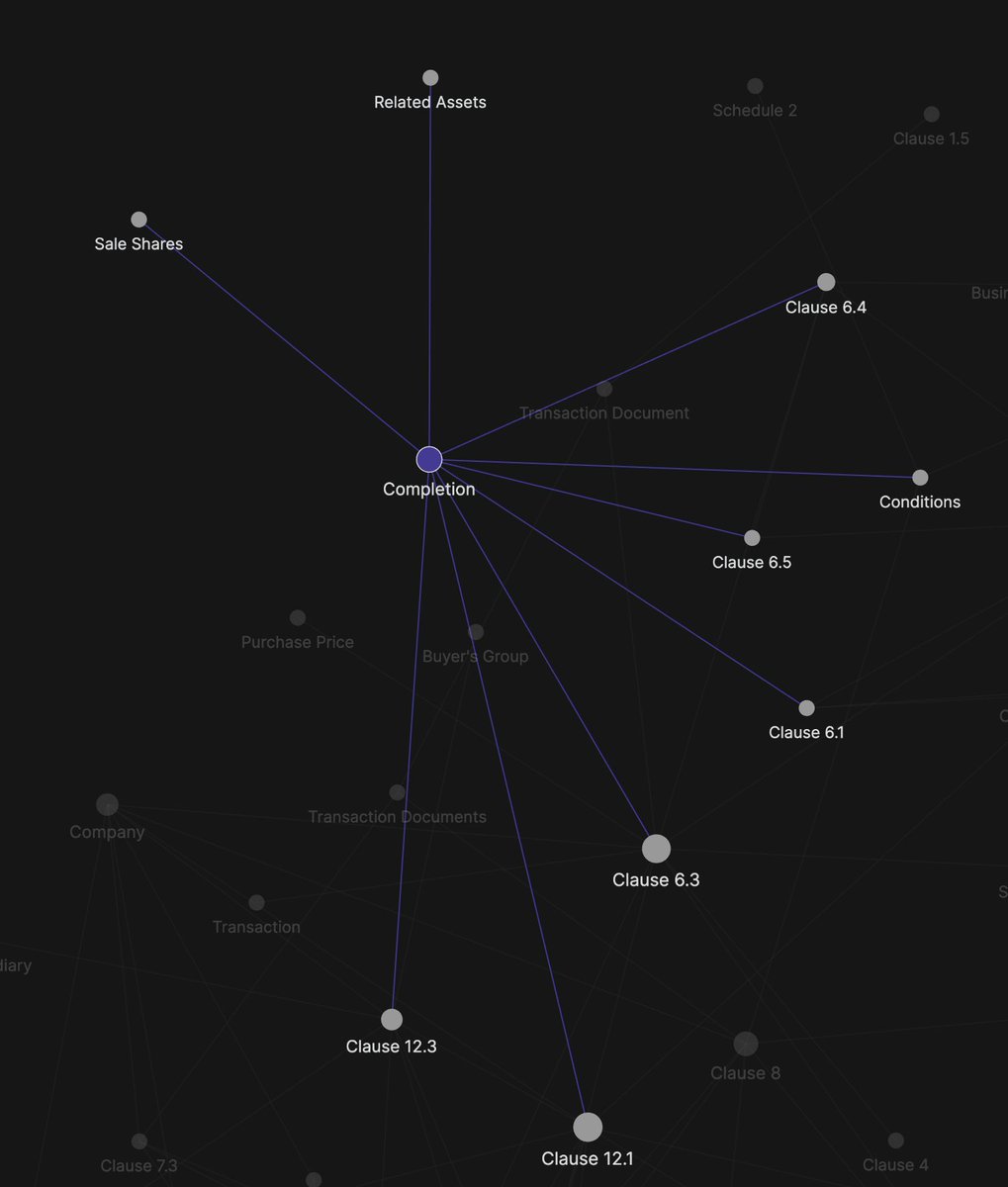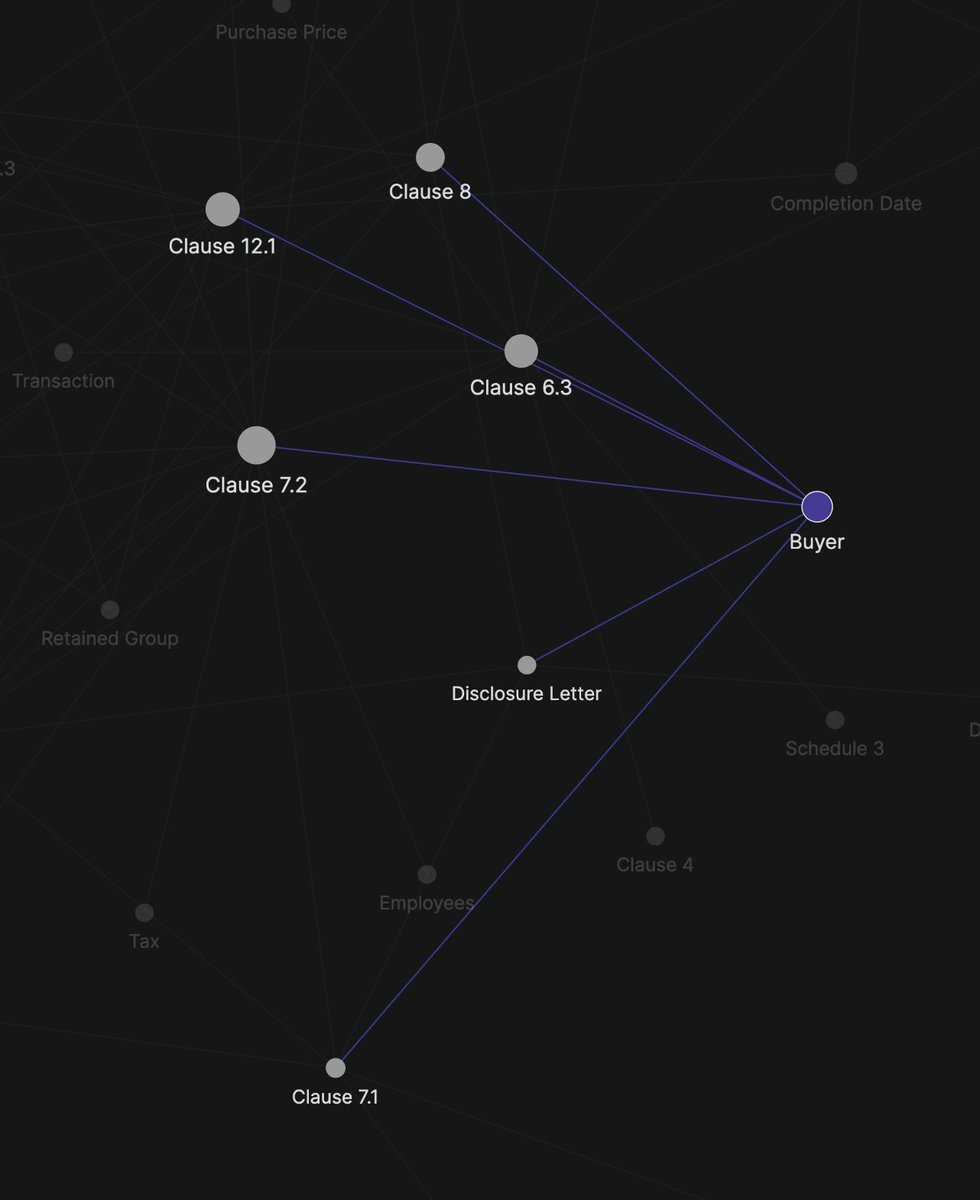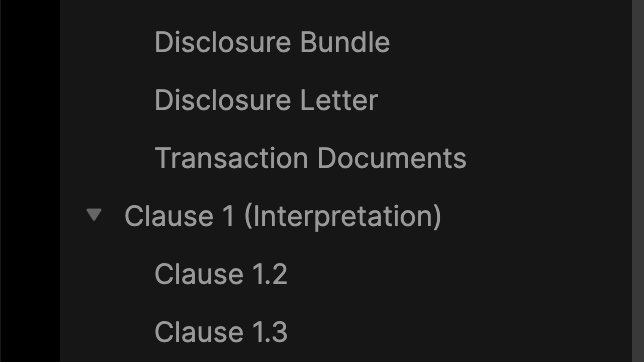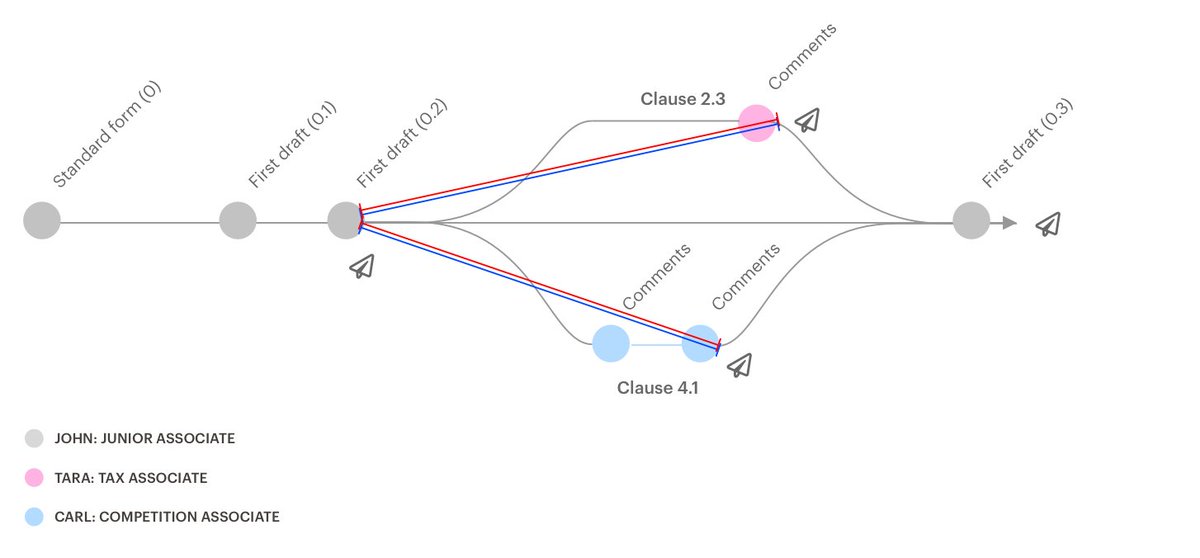I hope that at some point in the future, we "componentize" legal documents. What I mean is: move from one huge document to lots of smaller documents that collectively make up the document. I've had a fun day playing around with this in @obsdmd
I firmly believe that we won't (and probably shouldn't) be switching away from Word anytime soon. I also believe lawyers need to use Word properly before more sophisticated tools are developed. My opinion: for complex contracts, lawyers do not want anything other than Word
But in the midst of a heat wave on a Sunday afternoon, that doesn't stop me wondering what the future could hold...
Here are a few examples of how we could work with long + complex contracts. In these examples I've broken a contract down into many files: one for each clause and definition. Finally, you can start to establish relationships between different parts of the document...
 Example 1: definitions. Changing a definition in a contract changes the legal effect wherever it is used. In Word, prudent lawyers CTRL+F the definition to see where it is used, and then make sure there aren't any intended consequences as a result of using the definition
Example 1: definitions. Changing a definition in a contract changes the legal effect wherever it is used. In Word, prudent lawyers CTRL+F the definition to see where it is used, and then make sure there aren't any intended consequences as a result of using the definition
In my componentized world, I have a separate file for the definition of Completion. It uses backlinks ([[ ... ]]) to link to other definitions or clauses. The drop-down menu it generates is really useful too for cross-checks and fixing typos etc.
Because the data is structured, I can easily see (i) which definitions are referred to in the definition of Completion, and (ii) which clauses use the definition. I can then click on each of the "nodes" and inspect the knock-on effects really easily
 Example 2: understanding rights and obligations. If my client is the buyer, I need to make sure they fully understand the extent of what they are signing up for. In Word, I would probably do a review of the document and produce some sort of table summarising the situation
Example 2: understanding rights and obligations. If my client is the buyer, I need to make sure they fully understand the extent of what they are signing up for. In Word, I would probably do a review of the document and produce some sort of table summarising the situation
Using backlinks, I can track down every single clause that the Buyer is mentioned in, and quickly interrogate their obligations. Much more quickly than CTRL+F-ing for several hours.
 Example 3: contract collaboration. A popular model is to have somebody in charge of the document. Nobody else has access to the "live" document. Changes are sent in and get typed into the document. This is really slow. But it does ensure somebody has oversight of the whole doc
Example 3: contract collaboration. A popular model is to have somebody in charge of the document. Nobody else has access to the "live" document. Changes are sent in and get typed into the document. This is really slow. But it does ensure somebody has oversight of the whole doc
As an alternative, co-authoring could let people edit the document simultaneously. This can cause some issues in complex documents because things can slip in without somebody reviewing the holistic effect of changes. If 2 people are editing the same sentence, it can get tough too
If you componentize the document, you could do a mix of these. Allow a contributor to "check out" the clause they need to change - but this doesn't block others from doing the same to other parts of the document. Because you are checking out part of the doc, not the whole doc
When changes are made, somebody is responsible for accepting/rejecting the changes to that part of the document. It's a balance between (i) allowing changes to be made efficiently, and (ii) getting control of the entire piece. (Am aware the below diagram looks a little like Git)
 Example 4: data analytics. Others are much more qualified than me on this stuff. But one uncontroversial thing I can say is that structured data + Word is not really a thing. You have to use clause extraction tools to meaningfully compare the effect of a document with another
Example 4: data analytics. Others are much more qualified than me on this stuff. But one uncontroversial thing I can say is that structured data + Word is not really a thing. You have to use clause extraction tools to meaningfully compare the effect of a document with another
The combination of smaller files + more files AND the use of backlinks (and other markdown) would give more data structure than you'd get in a Word document. It could, e.g. let you extract warranties from contracts with little effort, and compare their legal effects
So in short, we're in Word for the foreseeable future. But if we managed to break down our long, complex, monolithic contracts into their bitesize, better structured component parts, I think it would unlock many issues that haunt people working in the legal space

 Read on Twitter
Read on Twitter![In my componentized world, I have a separate file for the definition of Completion. It uses backlinks ([[ ... ]]) to link to other definitions or clauses. The drop-down menu it generates is really useful too for cross-checks and fixing typos etc. In my componentized world, I have a separate file for the definition of Completion. It uses backlinks ([[ ... ]]) to link to other definitions or clauses. The drop-down menu it generates is really useful too for cross-checks and fixing typos etc.](https://pbs.twimg.com/media/Ee_YFloXgAEVpE_.jpg)






